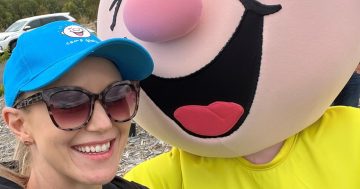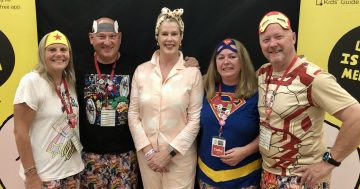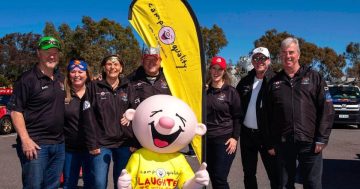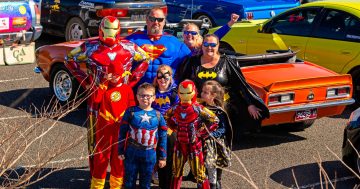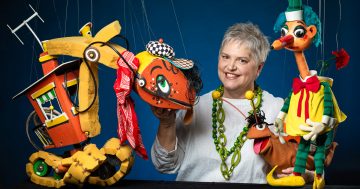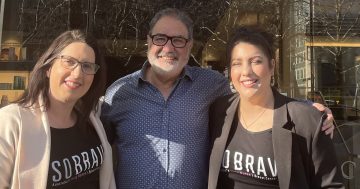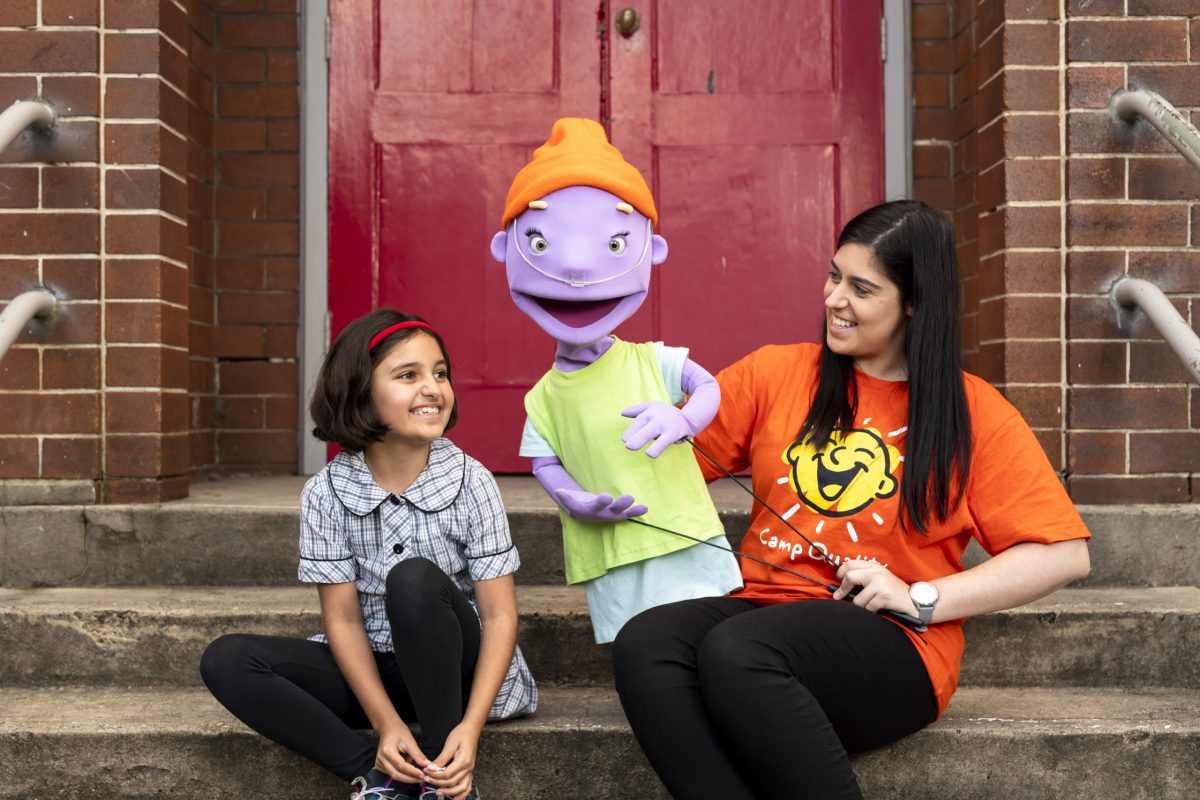
More than 70,000 students in 2023 have seen the Camp Quality puppet show. Photo: Camp Quality.
Last year more than 10,000 children and almost 5000 families would have been worse off if Vera Entwistle had listened to the naysayers when she first floated the idea for Camp Quality in the early 80s.
Four decades later, the organisation supports one in three children diagnosed with cancer and a KPMG report commissioned in 2020 has shown a $5 social return on investment for every $1 spent on its primary school Cancer Education Program (CEP).
Dispelling common cancer myths, the program helps kids impacted by cancer to reintegrate back into school and the broader community. That includes children with family members impacted by cancer.
More than 70,000 students have this year seen the crowning glory of Camp Quality’s CEP – a puppet show like no other featuring new characters Ariel, Tom and Coach Grimble and the original crew, Kylie, Dean and Mel.
Independent assessment has shown these performances decrease bullying, absenteeism and mental health issues.
Camp Quality CEO Deborah Thomas says extraordinary as these results may seem, none of it is truly surprising.
“Information empowers people. When we understand a problem, we’re able to deal with it – it’s true of adults and children alike,” she says.
“Our Cancer Education Program is an age-appropriate way for children to learn about cancer and understand from the puppets that present the program what’s happening in their family, or the family of their peers.
“I’ve been to the schools, I’ve seen the show in action and how the kids respond to it, the questions they ask at the end – they’ve been engaged, they’ve listened to the messages and taken it all in … it’s an incredible tool to connect with children.”
The Camp Quality CEP is available to any school that requests it, including tools for educators and a resource book that integrates into the national curriculum.
The goal is to get the message out to as many children as possible. Although the survival rate for kids with cancer has vastly improved since Camp Quality’s inception, its purpose is more important today than ever.
“The survival rate for cancer these days is about 80 per cent whereas 40 years ago, I believe it was roughly flipped,” Ms Thomas says.
“Back when they set up Camp Quality, they figured ‘We can’t extend the longevity of these children’s lives but we can improve the quality’ – hence the name Camp Quality.
“The improvement in survival rates has been wonderful, but it comes at an incredible cost to these children.
“The treatments can last longer, some can be more aggressive, the recovery is extremely difficult and it takes a toll on families … we want to be able to support them from diagnosis through to remission, and it can be a long journey.”
With incredible reach over the years, Camp Quality has amassed countless stories of how it has improved the lives of children impacted by cancer. Ms Thomas says it never gets old.
“We recently got a call about a family in desperate need. The parents had three children under six and the youngest, Eli, had been diagnosed not long after birth. His parents hadn’t had a full night’s sleep, they were in a state of constant stress and worry, and they were at breaking point,” she says.
“We were able to get them into one of our Camp Quality retreats with registered nurses and doctors on hand so the family could enjoy their first quality time together, free of fear. They went on to use our camps and other services, and I am thrilled to say little Eli is now in remission.
“That’s one story. I could tell you of a dozen such families off the top of my head and they all tell us the same thing – that Camp Quality saved them.”
The Camp Quality offering is ever-evolving to stay ahead of the needs of families impacted by cancer. During COVID, the organisation increased its retreats from five to 14 and introduced virtual camps.
More recently, it’s introduced family advisory and kids advisory committees to keep track of what components of Camp Quality programs are helping most.
But in terms of the overall goal, that won’t ever change.
“What Vera saw all those years ago was an opportunity to take kids out of hospitals to a camp or for a fun day where they could create these beautiful, positive memories, in most cases before they died,” Ms Thomas says.
“Vera told me she went to every funeral of every Camp Quality child and invariably, the photo used of them was of them laughing and having a wonderful time at a Camp Quality camp.
“When a young family faces cancer, the pressure is enormous, the darkness can be profound. We exist to shine a light into that darkness.”












